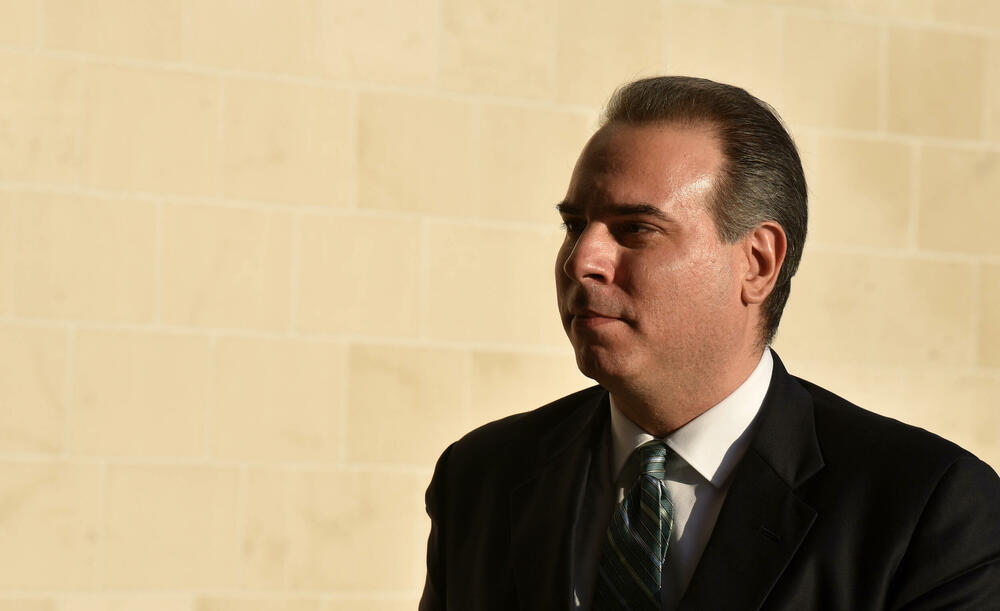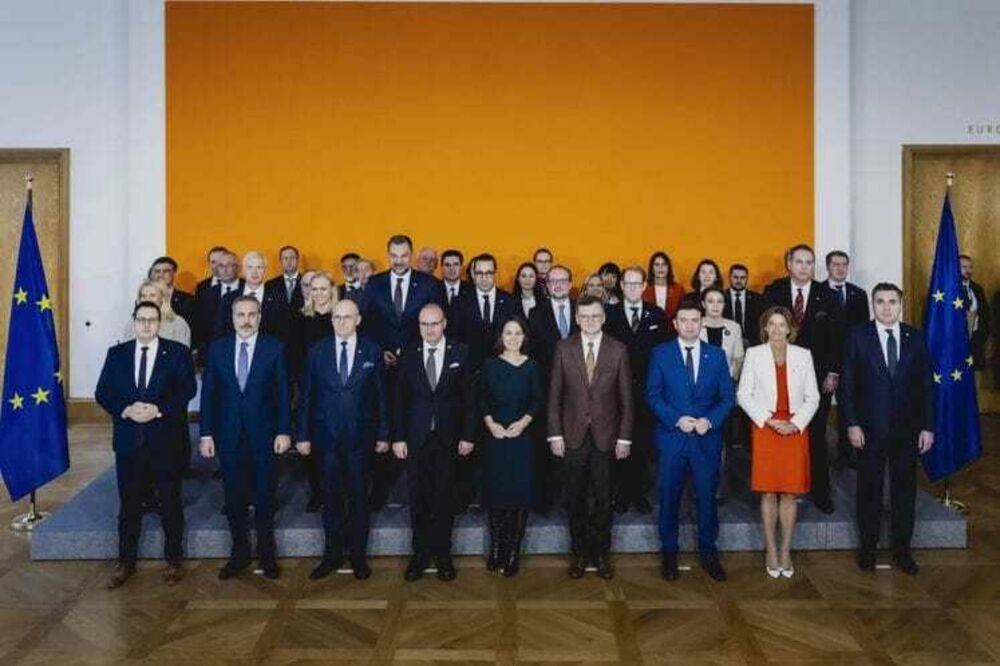From the ministerial conference in Berlin, positive messages were sent for Montenegro and the region, it was confirmed that EU enlargement is alive and that the candidate countries will not have to wait for the end of the reform within the Union.
This is what the Montenegrin Minister of Foreign Affairs told "Vijesta". Filip Ivanovic and editor of the European Western Balkans portal Nemanja Todorović Štiplija who participated in the meeting held on Thursday.
The conference entitled "Bigger and stronger Union - making the EU ready for enlargement and future members ready for accession" brought together about 20 ministers of foreign affairs of EU member states and candidate countries. The German Minister of Foreign Affairs is at the conference Analena Burbock proposed a detailed and innovative roadmap for EU expansion that would provide candidate countries with early benefits, such as observer status at leaders' summits in Brussels, before full membership.
Berbok said that candidate countries should be given the opportunity for more active participation in the EU because "what can act as a small gesture or a small thing can have a big effect."
"Why don't we, for example, invite countries that have finalized individual chapters in the accession procedure to attend council meetings as observers? They would be there when we decide on our future together, instead of inviting them once a year to listen to progress reports," Berbok said.
Montenegro has been involved in EU negotiations since June 2012 and since then has opened all negotiation chapters, a total of 33, and temporarily closed only three. In 2020, the European Commission adopted a revised accession methodology, which was accepted by Montenegro. Under the new methodology, if the transitional benchmarks for key chapters 23 and 24, which relate to the judiciary and the rule of law, are not met, no other chapter will be able to be closed. Reforms and appointments of leading people in the judiciary are among the key conditions for obtaining the final benchmarks for chapters 23 and 24 (judiciary and rule of law).
Ivanovic said that the candidate countries and the Union itself reiterated their readiness to focus and work together to fulfill the conditions for membership.
"During the talks, I pointed out that Montenegro has made the most progress in the negotiations and that we value the principle of progress based on merit," Ivanovic said.

Todorović Štiplija believes that Montenegro, considering that there are no high-level political issues that burden the accession process, really has a chance to be the first next country to join the EU.
"Increased political momentum to the process can only help to fulfill that goal as soon as possible. However, this will require a broader political consensus in the country regarding the completion of important issues in the process, such as the completion of the judicial reform," he said.
He assessed that the conference in Berlin is proof that the atmosphere within the EU has changed and that enlargement is really high on the agenda of its leaders again.
He reminds that the history of the enlargement policy has shown how important it is for the influential countries of the European Union to advocate for the process itself.
"In the case of the Western Balkans, all these years precisely those countries were either reserved or, like France, blocked the process," he said.
Ivanovic said that the conference discussed the EU's preparations for new rounds of enlargement and the importance of reforms going hand in hand with the enlargement policy. Todorović Štiplija believes that this is an important message from Berlin - that the member states are ready to enter the process of reforming the Union itself, which has been delayed for a long time.
"An even more important message is that the candidate countries will not have to wait for the end of that reform, but that the enlargement process will go parallel to it," said Todorović Štiplija.
He believes that it is important for the citizens of the region that, regardless of the geopolitical necessity of enlargement, the EU will continue to insist on the most important criteria regarding the rule of law and the building of institutions in the accession process.
Analena Berbok, speaking about candidate countries, said that EU members should ensure that people from those countries, especially young people, get the opportunity to participate in the advantages of the EU at an early stage, even before their country becomes a full member.
The "Politiko" portal announced that this could mean that students from countries such as North Macedonia, Serbia or Turkey will be able to participate in the Erasmus student program, a reduction in roaming fees or a simplification of procedures for obtaining visas for citizens of candidate countries.
Ivanovic said that during the conference, current geopolitical challenges and trends were pointed out, as well as the fact that the Western Balkans is an integral and natural part of Europe, which represents an additional stimulus to the process of its integration into the EU.
"I pointed out Montenegro's commitment to European integration and conveyed the determination of the 44th Government to intensify the negotiation process and make a step towards faster fulfillment of the final, common goal of membership in the EU," he said.
He reminded that the idea of enabling the candidate countries, even before the membership itself, to participate in a certain format in the dialogue at the level of the member countries, has been a subject of discussion for some time.
"The fact that such an initiative was presented during the conference by the Minister of Foreign Affairs of Germany is an additional confirmation that the enlargement process is a topic that ranks high among the priorities and that the member countries are considering different modalities to contribute to dynamizing the negotiations. I believe that the initiative will find support and contribute to the overall progress and bringing the Western Balkans closer to full EU membership," Ivanovic said.
"Germany must say no enlargement before EU reforms"
Oliver Nojan, editor of the Euroaktiv portal, said that if Germany really wants to get things started, it will have to take a more decisive stance and make one thing clear: there will be no enlargement until the EU is reformed.
"German ministers have so far avoided such a statement, most likely for fear of alienating candidates such as Ukraine. But if Germany, as the biggest proponent of reforms, does not take such a decisive position, there is a high probability that enthusiasm will eventually evaporate and leave enlargement on hold," Nojan wrote in an editorial comment on the Berlin conference and Analene Berbok's message.
Nojan recalled that the declaration adopted last month after the informal meeting of European heads of state and government in Granada mentioned EU reform, but did not specify what that reform should include.
"There seems to be a broad consensus among EU countries that enlargement is becoming a geopolitical necessity. However, a proper discussion about reforming the bloc before new members are admitted never seems to take off - and Germany is partly to blame," he believes.
Bonus video:






